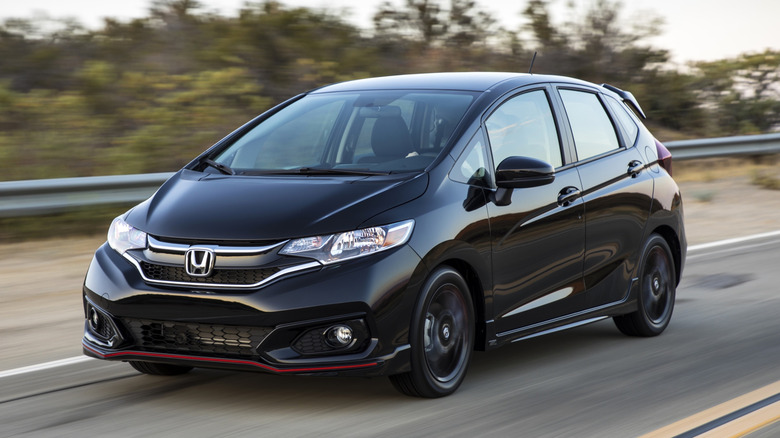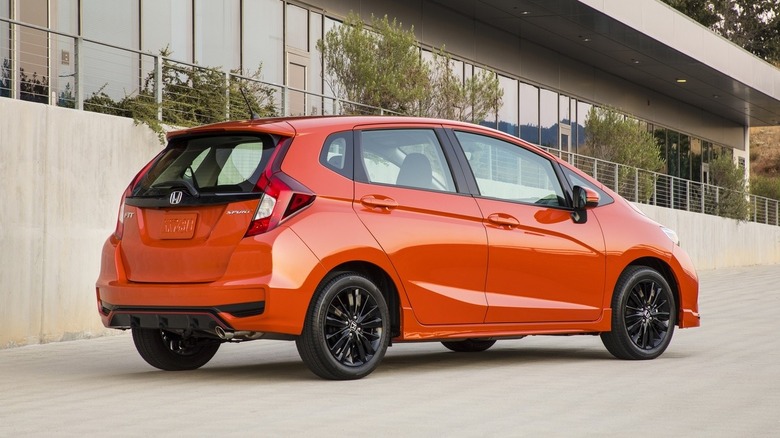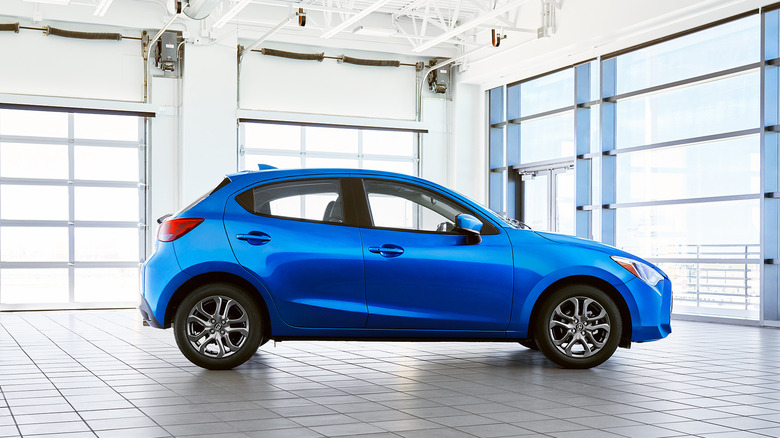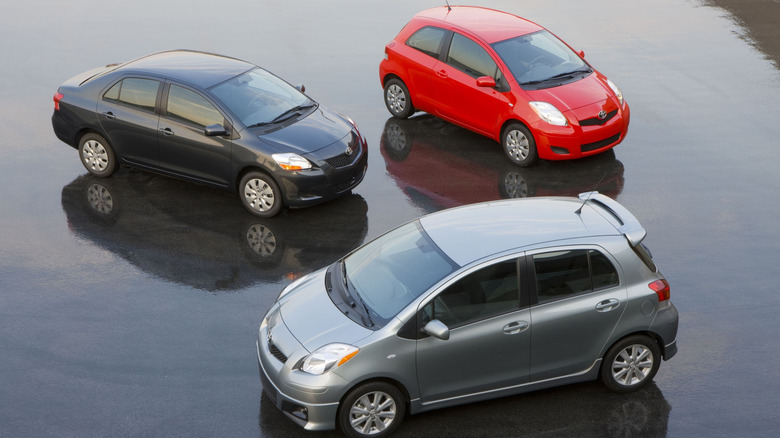Sorry, Small Car Complainers, You Had Your Chance And You Fumbled It
Spend enough time in car circles online or in person, and you will hear people bemoaning the lack of "small" cars. Not cars like the Toyota Corolla or Honda Civic, mind you; they're referring to real compacts such as the Honda Fit, Toyota Yaris, and Nissan Versa Note, all of which had their moment in the limelight and still enjoy a cult following despite each model's respective discontinuation.
Small cars have existed in the United States in fits and starts over the years, but none have ever stayed around for very long compared to perennial sales successes like the Chevy Equinox or the aforementioned Corolla. One important fact to consider is that, for the most part, it's not the car's fault that it failed to gain traction. No one is going to argue that the Honda Fit was a bad car by any means, and current Fit owners will probably try to fight you for suggesting that the Fit was a through-and-through disaster. As boring and anticlimactic as it might sound, small cars simply don't sell very well in the United States. And it isn't a matter of falling short a few hundred units a year; compacts regularly fail miserably when it comes to sales figures, and we only have ourselves to blame.
The numbers tell a story
We don't want to pick on the Honda Fit, but it's an almost perfect case study to analyze. Honda discontinued the Fit after the 2020 model year, and Honda's American lineup hasn't had anything to replace it. Everything was in the Fit's favor: Honda vehicles sell well, and the company is renowned for reliability and customer retention. The Fit was significantly cheaper than the Civic, too, with a starting MSRP of $16,190 (in 2020 dollars), compared to the 2020 Honda Civic's $20,000 starting price. Reviews during the Fit's lifetime praised its relative spaciousness and fuel economy. The Fit was (and is) a good car from a good company, no two ways about it.
Despite all this, it couldn't sell. In 2019, Honda sold 35,414 Fits. Over 35,000 cars isn't bad, but when you compare it to the Civic's 325,650 sales, the picture gets a little clearer. Comparing Fit sales to CR-V sales brings the plot into even sharper focus. Honda sold 384,168 CR-Vs in the same period. Sales records from 2018 tell much the same story: American drivers just didn't buy the Fit, and it was through no fault of its own. The ever-hovering specter of the American Market claimed the Fit as a victim.
Even Toyota couldn't escape the trend
The Toyota Yaris is in the same compact and fuel-efficient boat, and it too flopped. I, personally, like the Yaris and its compact charm. I took my driver's license test in one and enjoyed driving it. The Yaris is uncomplicated transportation at its greatest, and it is also from an unproblematic automaker. Unfortunately, like its compact car brethren, it just couldn't make the numbers work. It met its demise for the 2020 model year after it transformed into a kinda-sorta Mazda2.
Breaking down the sales numbers, it's a story we know all too well. 2019 sales figures for the Yaris show 21,916 units sold. That's unfortunately abysmal for the poor Yaris, as the Corolla, Camry, and Prius sold 304,850 units, 336,978 units, and 69,718 units, respectively. The Rav4 completely dominated it, with 448,071 cars sold. The Yaris just couldn't compete with the rest of Toyota's lineup.
The other vehicles were all bigger and faster, but they were also more expensive and less efficient (aside from the Prius). However, customers voted with their wallets, and the larger cars won in the end. I'm not saying that it's necessarily a good thing, but you can't argue with reality and sales numbers.
It's up to us to reverse the trend
As easy as it is to picture a shadowy group of automotive executives plotting the demise of small cars, much to the chagrin of car buyers, that's simply not the truth. Every once in a while, a small car will hit the market — the ones I've discussed, plus other examples include the Geo Metro, the Nissan Versa Note, the most recent Fiat 500, and the discontinued Mitsubishi Mirage — and people just won't buy them, instead going for bigger cars. We all had the chance to buy small cars, and by and large, we just didn't. I fumbled it, you fumbled it, we all fell short.
What does that mean for future automotive lineups? It's a little hard to predict. It's entirely possible that an automaker will bring a new compact car to the American market; given the high average price of new vehicles in 2025, such an automaker would have a chance to make a splash with something economical. We just have to actually buy it to make it work in the long term.



